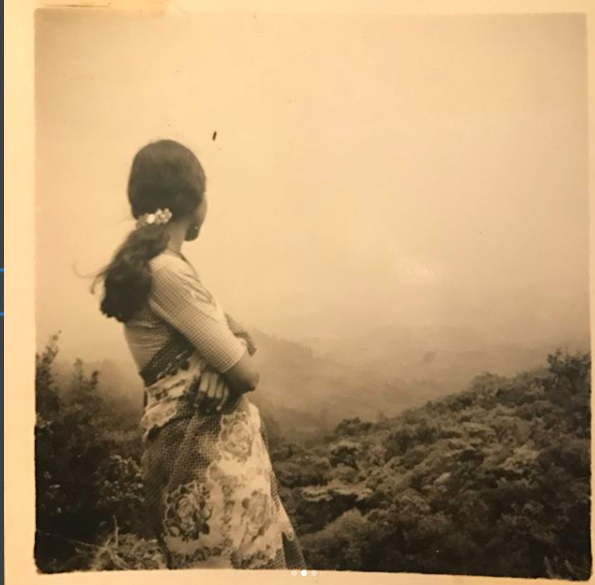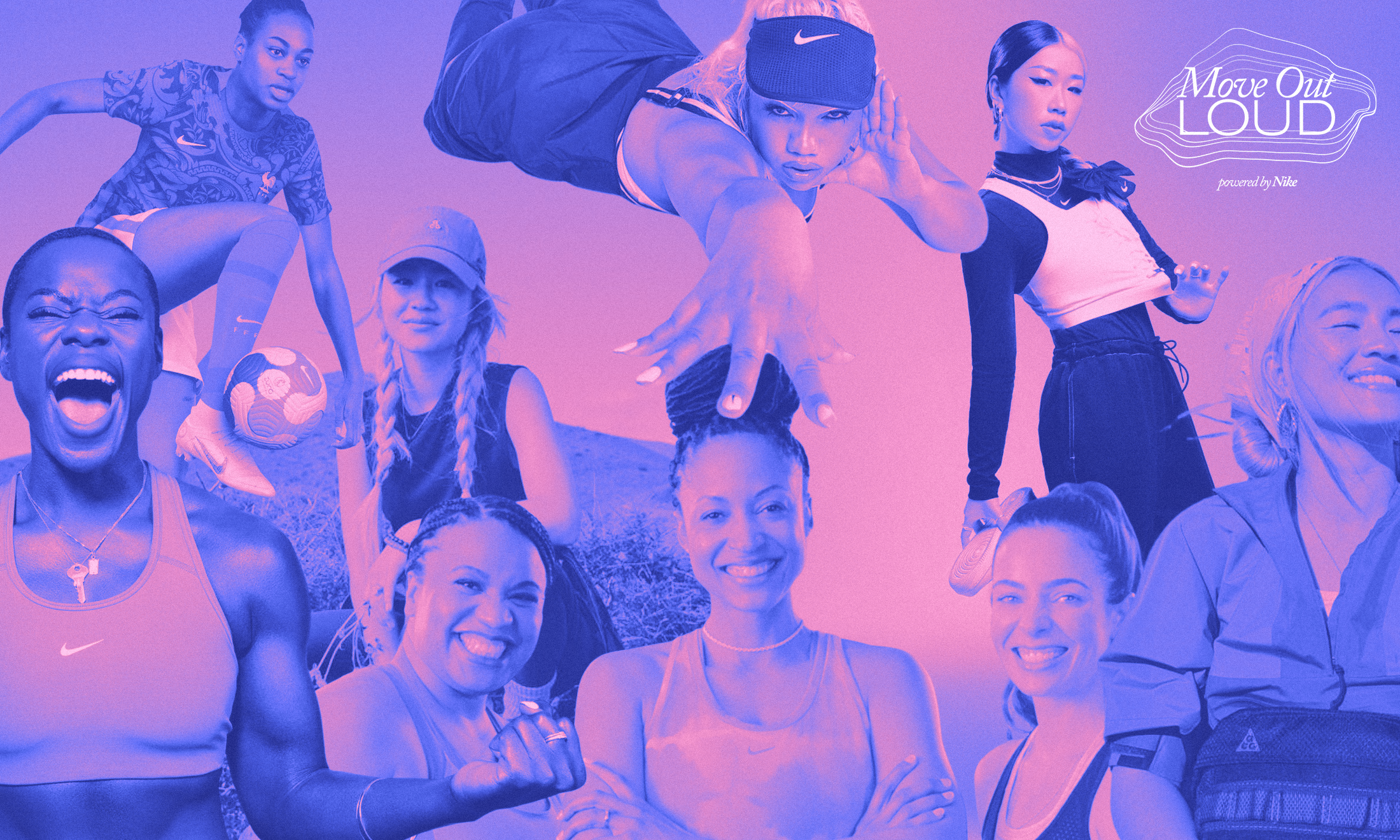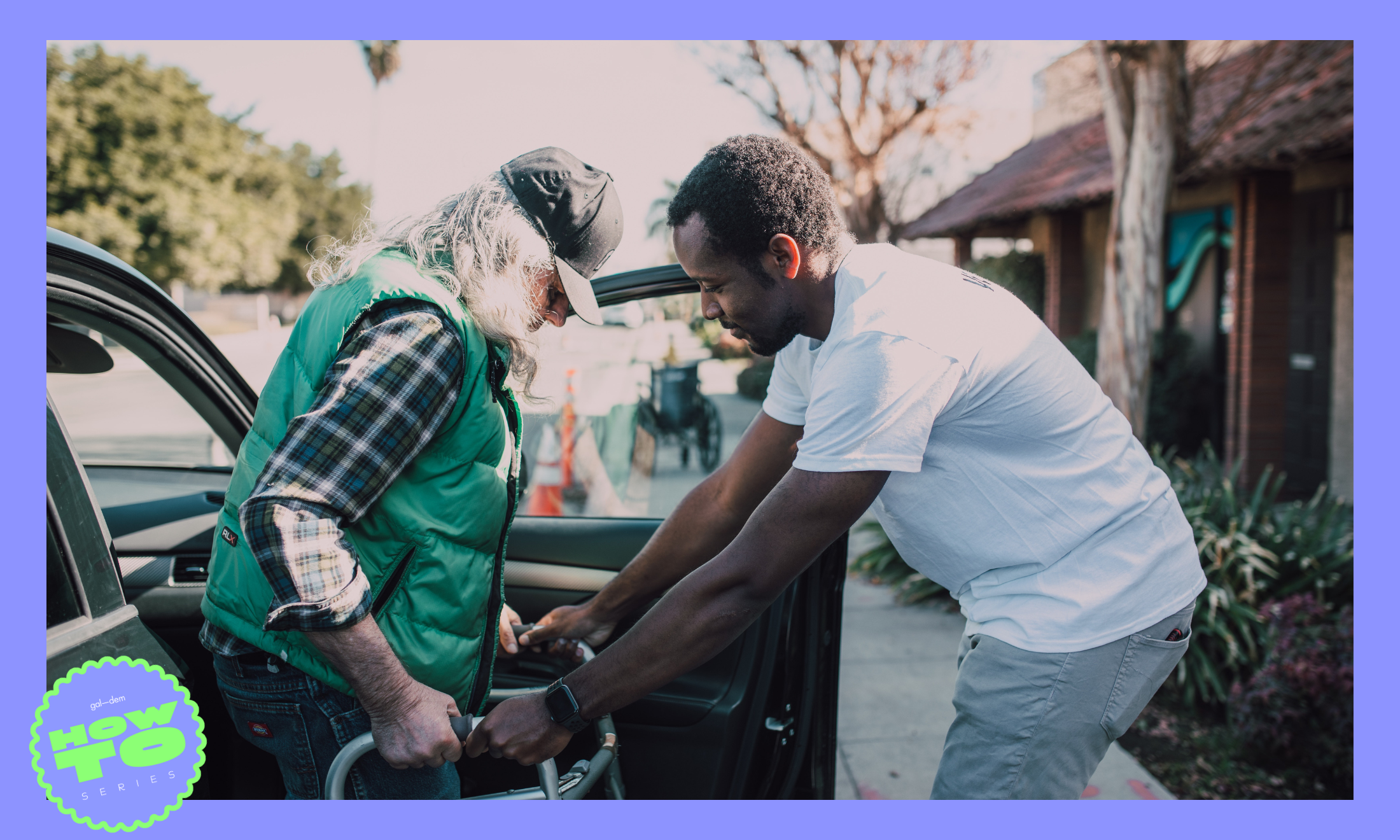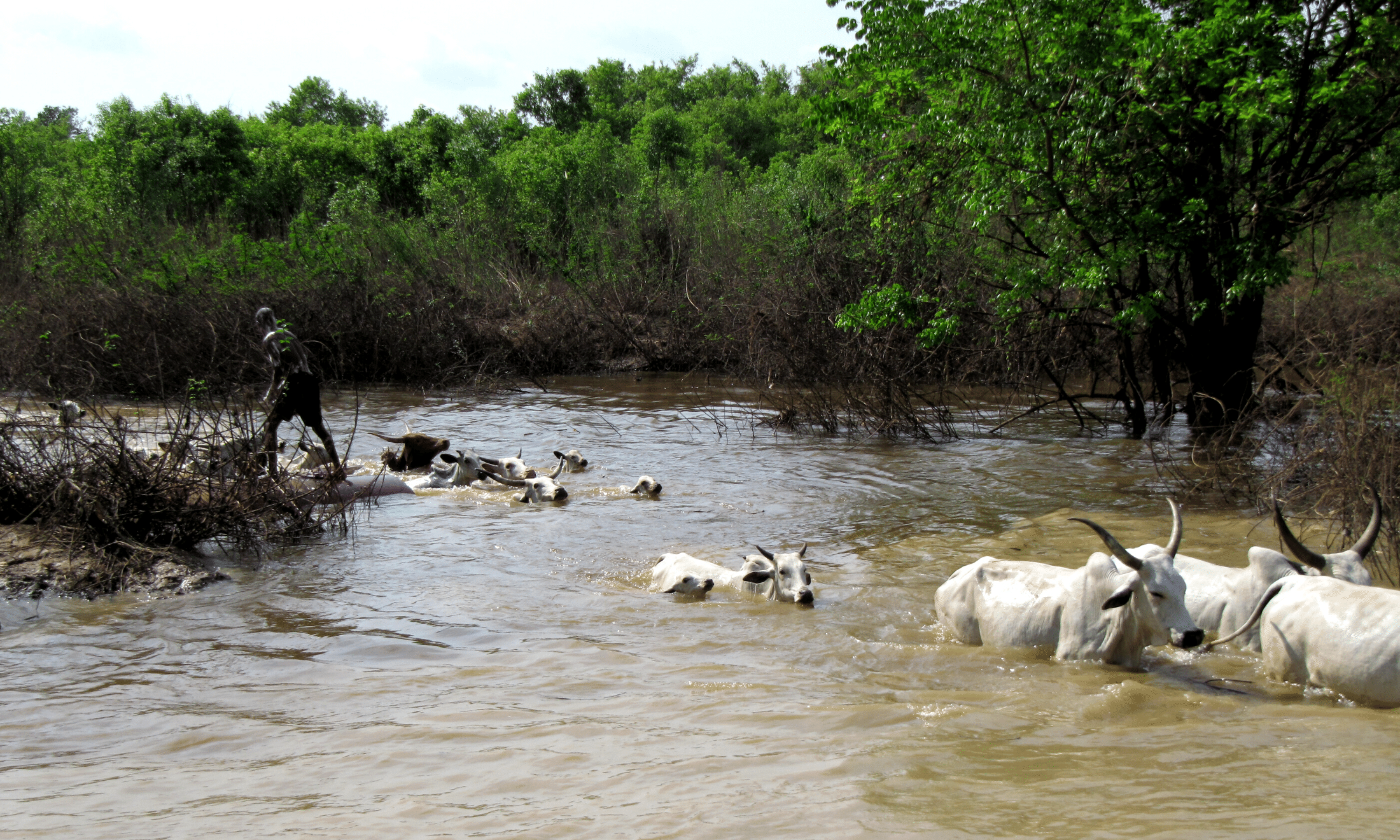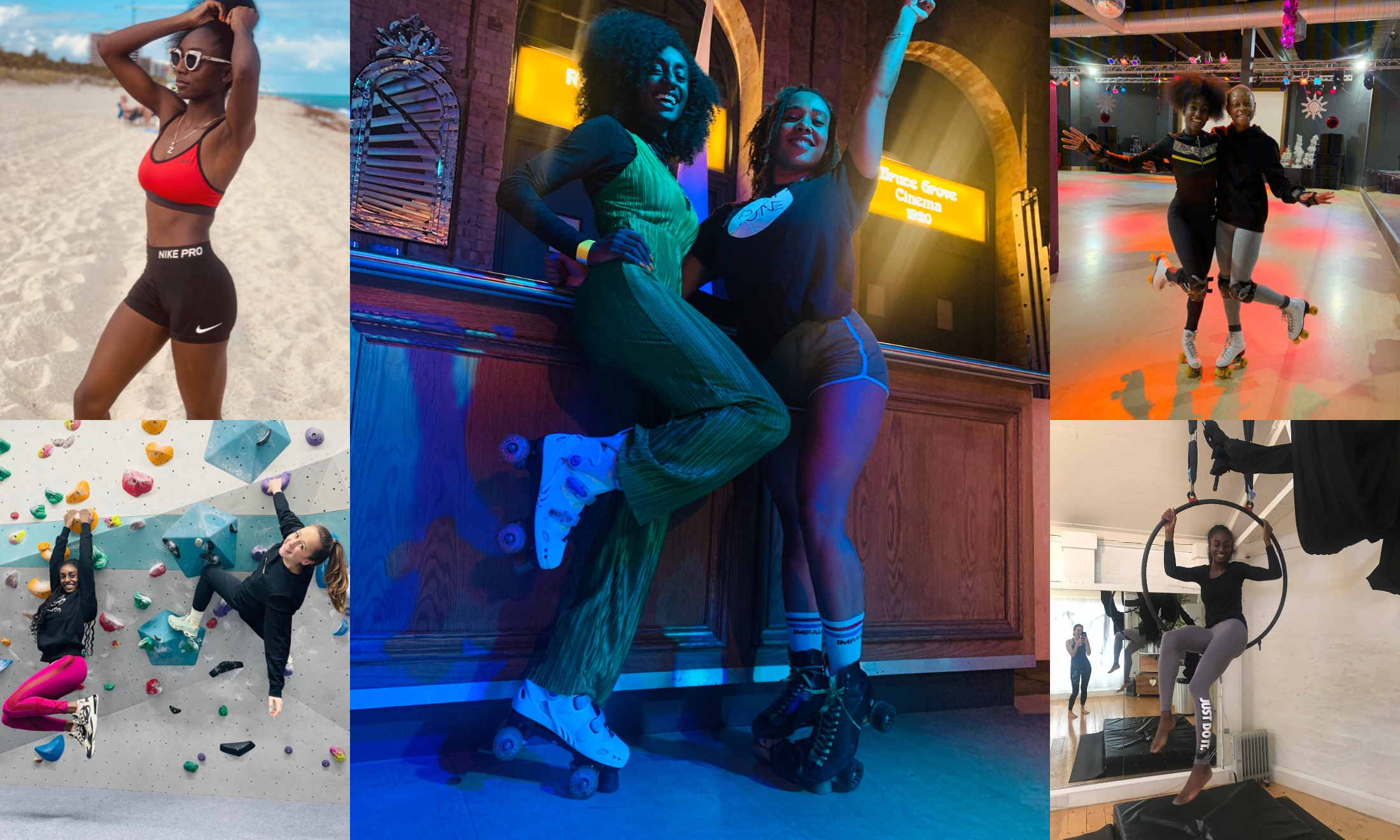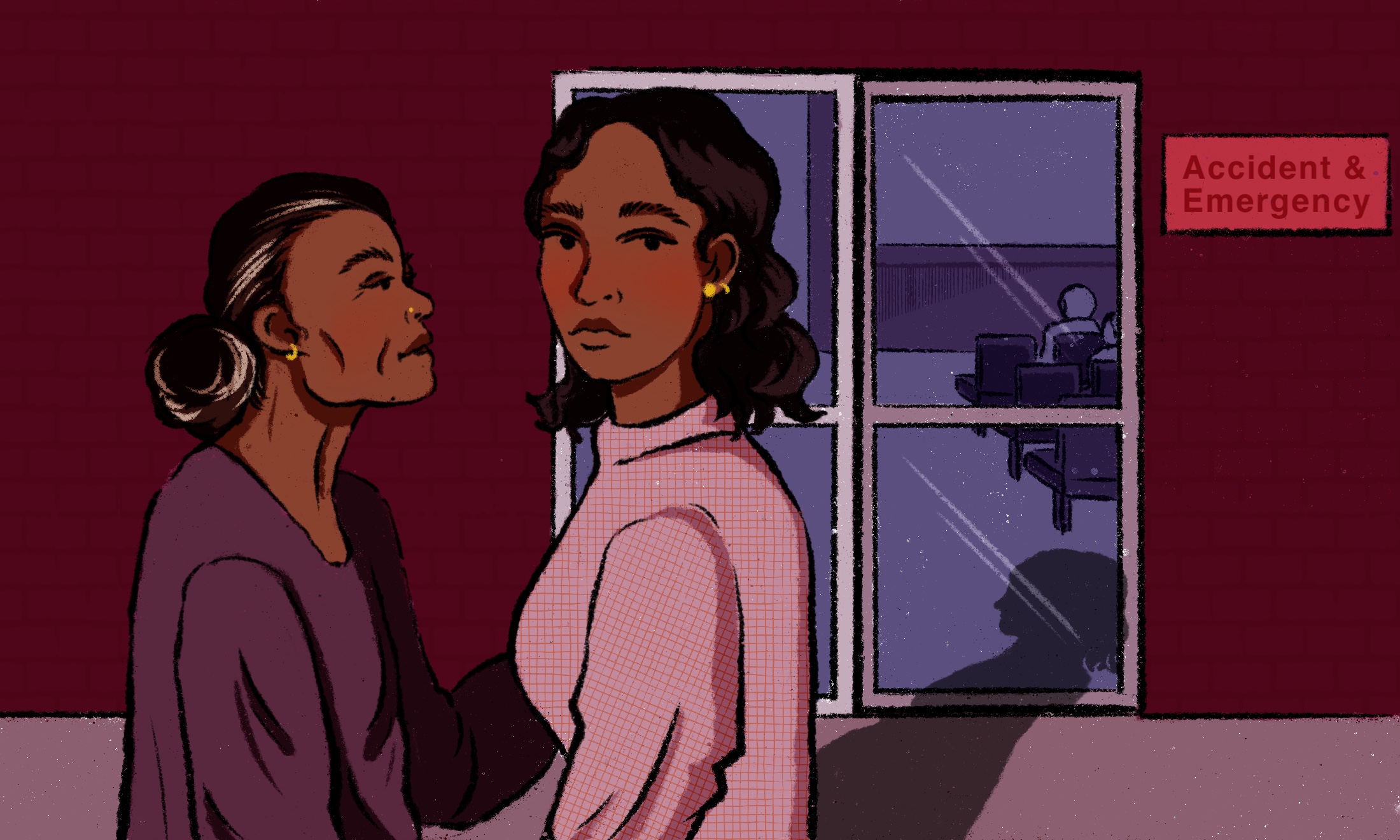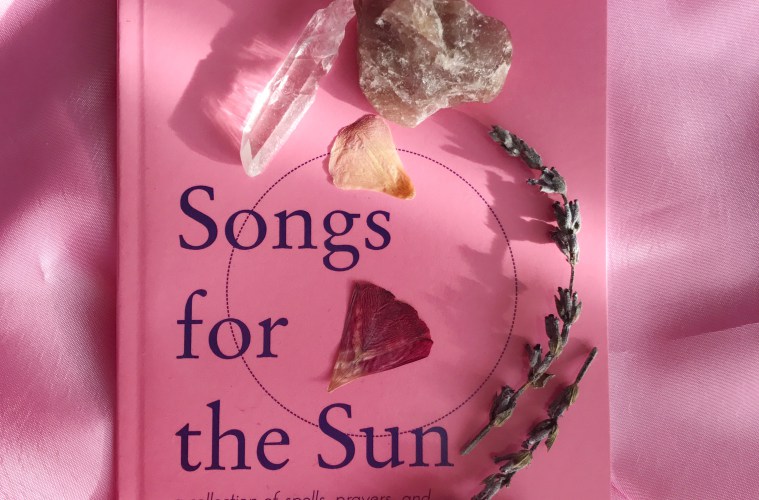
At the centre of my altar lives my friends’ poetry books. Alongside a photo of my father at 22 and a piece of rose quartz, meant to conduct love and creative energy, my friend’s poems are the most divine catalyst of community and creation.
They are piling up, some with pressed rose petals awaiting new life between pages, others with dog-eared edges and a sweater of incense dust. Each page is an embodiment of their experiences, which for so long, existed only within the unspoken and the forgotten.
When my friends finally recognised and shared their stories, they began to live their truths.
For every poem of self-love and replenishment, there is an equal and sometimes greater preceding action; it involves rewrites, healing, breaking, and getting to know the parts of oneself that have been hidden.
When I think about how much has changed for me since I started writing and performing four years ago, I am reminded of the saying “it takes a village”. Writing, sharing and listening to poetry in the arms of my community are part of a sacred, transformative experience. It’s what helped me finally name myself as a survivor of partner violence, to confront how the impacts of colonisation have been passed down to me, and how being both queer and South Indian-Tamil have been instrumental to all of this.
It is how I found joy, and learned that despite these pains, I am a conductor of love and I share that love through art. I found home on a stage, baring my soul; I found home on my best friends’ couch, reading poems off my phone and listening to them do the same. I found myself worthy of receiving and providing love.
Readers, I challenge anyone who has resisted writing due to fear of rejection, lack of community support, or the anxiety of knowing oneself completely, to start with one of these prompts.
1. Write a letter to your body, be kind as you would be while writing about a lover’s, welcome yourself home.
2. If you knew your ancestors were watching over you, what would they say, what would you tell them?
3. Write a poem of praise for a femme in your life, read it to them.
4. Write a poem of praise for yourself, read it aloud.
This world we share is terrifying, beautiful, complicated, and abundant. Art is a means of survival; I am eternally grateful to take part in its divinity with community, and hope to provide that for others meaningfully in this lifetime.
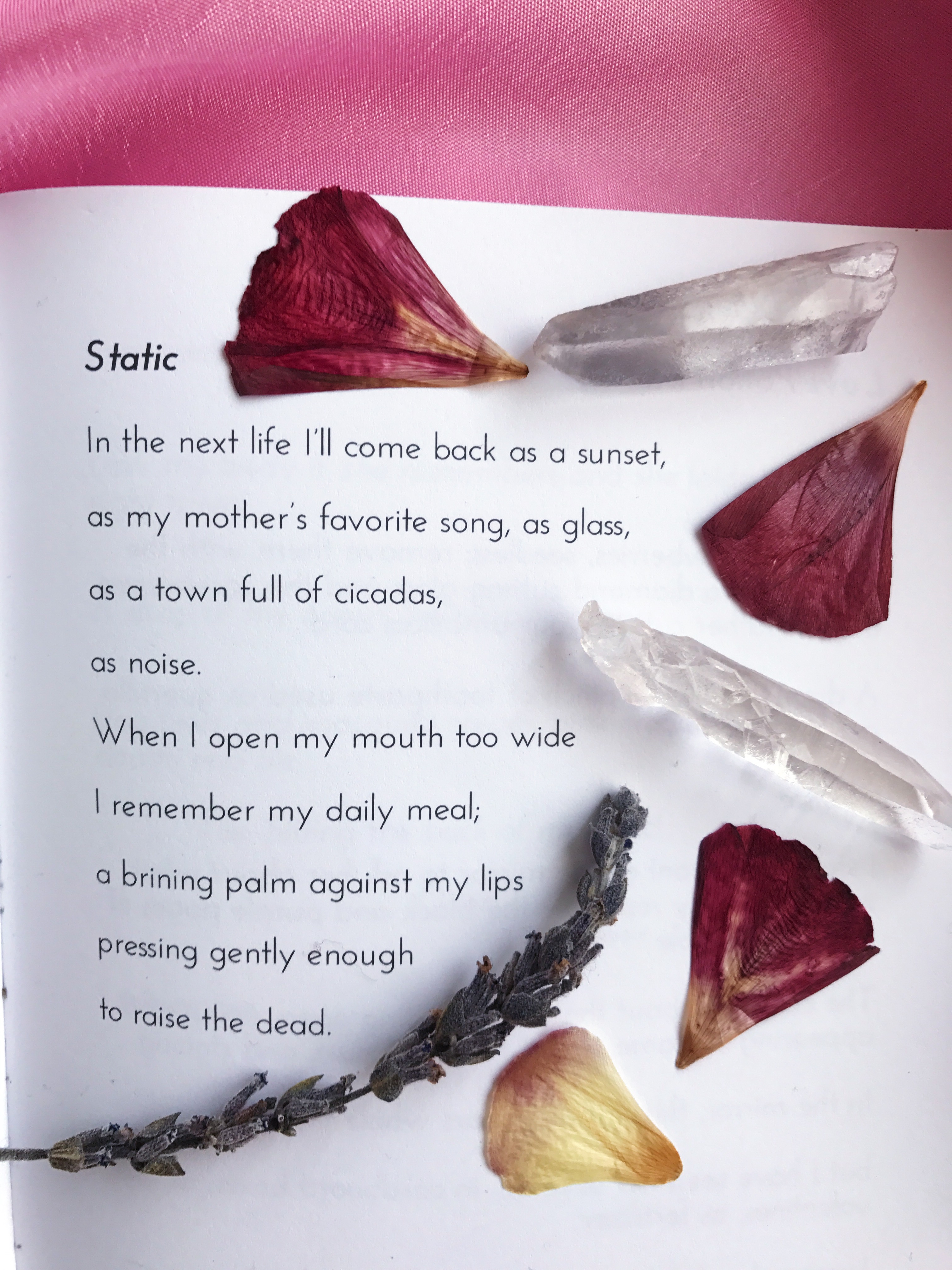
I spoke to a few poets in hopes of learning more about their experiences with community and art. The interview below was made possible by Anisa Evans, open-mic hostess and dancer, Yasmin Kouchesfahani, an Iranian-Zoroastrian storyteller, Katie J. Smyser, a member of the poetry collective Las Lunas Locas, and Sakile Odimo, a radical black multi-disciplinary artist.
gal-dem: What does community mean to you?
Katie J. Smyser: A tight-knit group of queer, PoC, gender non-conforming, poor as heck but hustling, single mothers, teachers, social workers, daughters, lovers, friends, poetry-loving individuals.
Sakile Odimo: Community is home, my Black and brown sistas, my safe haven, my centre.
Yasmin Kouchesfahani: It is connection, mine consists of my Zoroastrian community in San Jose. I also have a community in Davis, California, a mix of neighbours, best friends, activists and my parents. Another is made up of my soul-sisters and gender non-conforming siblings.
Anisa Evans: Community is a feeling… Mine consists of my family, friends, children and elders. Made up of construction workers, farmers, businessmen and women, poets, dancers, etc. We share in the commonality of a collected consciousness, understanding that we cannot survive, let alone exist, without each other.
How have other poets helped you understand your own experiences?
Katie: When hearing your experiences in others’ words, you can face the wounds within you and recognise that they are finite and treatable, not all-powerful.
Anisa: I’m reminded that my experiences are intrinsically linked to those around me. We’re destined to be connected as humans. Having community around me is a reminder that the stories I have to tell are valid.
How does your hxstory connect to the poetry you create?
Sakile: Writing my truths about how we’re treated, about Jim Crow, Strange Fruit… How history is mirroring itself now.
Yasmin: Being from an indigenous, displaced, traumatised, nevertheless connected, healing community adds to my drive for expressing and recognising truth.
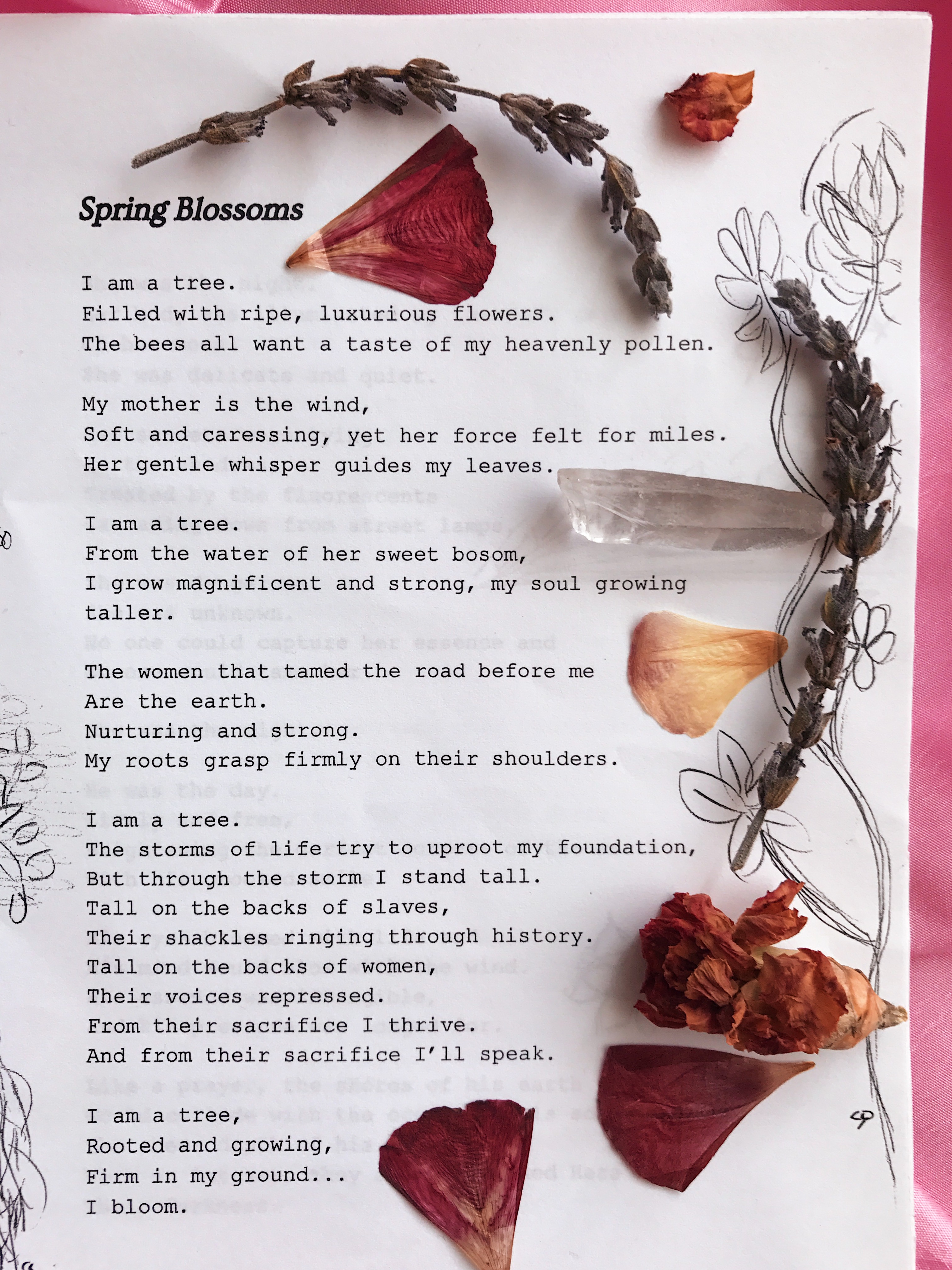
When writing and sharing poems on painful experiences, what does support look like?
Yasmin: Reflection and space for when I’m triggered or self-doubting. I thank my sisters for that, the womxn of colour in my life who have shared their burdens and forgiven mine.
Katie: [Support looks] like the time a young womyn came to her first circle and mentioned she would have to confront her rapist in court the next day. By the end of circle there were half a dozen womyn calling in sick to work so we could go to court and support someone we’d just met. It’s a sacred space, and it’s only possible through poetry and the love and strong support womyn show and have for one another.
How do you think poetry can heal?
Anisa: It provides internal healing that many people do not realise they need until they take time to hear themselves speak truth, pen to paper, something our ancestors have always done.
Katie: By writing down your own feelings, tears, triumphs, fears, and heartbreaks into something brutal and beautiful and true, then you begin to exhale, you can begin to heal.
You can buy ‘Songs for the Sun’, Anju’s poetry collection here.

